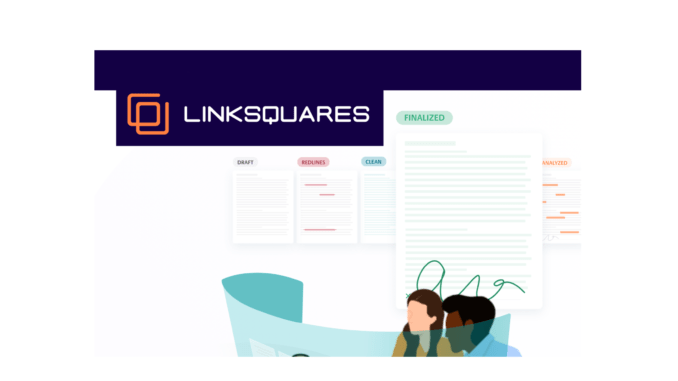
Boston-based legal AI company, LinkSquares, is launching a partner ‘Alliance Program’ aimed at forging commercial and tech relationships with legal services businesses, consulting groups, and other tech companies, both within and beyond the legal sector.
Vishal Sunak, co-founder and CEO, told Artificial Lawyer that the new project’s primary goal ‘is to get our software into the hands of others’.
An initial example is a link up with real estate software company Building Engines. Such deals allow other vendors to connect with LinkSquares’ now well-developed NLP contract analysis software so that it can be used in their field. For example, it could be used in this case for lease review.
They are also keen to work with professional services providers, such as law firms, or consultancies that may want to form a type of reseller relationship, marketing the software to their own clients.
As Sunak explained – (and who as it happens is related to the UK’s Chancellor of the Exchequer, Rishi Sunak) – ‘People have been coming to us and asking how they can use our AI technology (i.e. NLP text analysis) in their business or vertical’.
Generally, LinkSquares has focused on inhouse legal teams, helping them to gain better insights into their contract stacks, with some CLM elements added in. Clients include VMWare, Twilio, and Fitbit.
The move follows the recent launch of the company’s contract generator system ‘Finalize’ (see story). The US company also recently received major funding with a $14.5m investment – although Sunak said the funding surge was not the trigger for the new partnership strategy.
Chris Combs, co-founder and SVP of Business Development, added that there would be three tiers of partnership with other businesses to provide flexibility and a range of options to the relationships they forged.
Combs added that fellow US legal tech company DocJuris would be another example of a tech vendor that could be part of the alliance, as their two streams of tech were complementary. In DocJuris’s case they help with contract negotiation and red-lining, while LinkSquares helps with doc analysis, doc creation and CLM.
‘The goal is to share clients, refer business and look at product integrations,’ he added. ‘You could say this is an expansion strategy for us, moving in whichever way makes sense.’
He noted that in some areas they’d build additional tech themselves, as seen with Finalize, rather than via a partnership.
Is this a big deal? Many tech companies have formed partnership programmes for many years now, some from almost Day One of getting going. So, the impact here is all around how much it will help LinkSquares rather than a strategic shift more widely.
Overall, it makes a lot of sense, NLP software is adaptable – if there is someone there who is willing to put the time and effort in to train it for certain use cases that are new to it. In this respect – and one could say the same for most NLP companies in the legal space – what they have can be leveraged far more broadly…if someone will take the time to train the software on those new use cases.
The challenge of broad alliances is of course the risk of spreading yourself too thinly – although presumably the hope is that the leg work will be taken on by the partners. Another risk is heading off in too many different directions all at the same time – as even if partners are doing the leg work, the team at LinkSquares will have to be engaged with them to make these relationships a success.
In conclusion, it’s a smart move that taps what the company has built, it also may result in more clients – which generates more revenue for the business ….. and that is clearly the ultimate objective here. If they can get the balance right, then this partnership approach could extend the company without forcing them into M&A deals in the name of platformisation and client diversification, or put too much pressure on the team to manage the growing range of relationships.